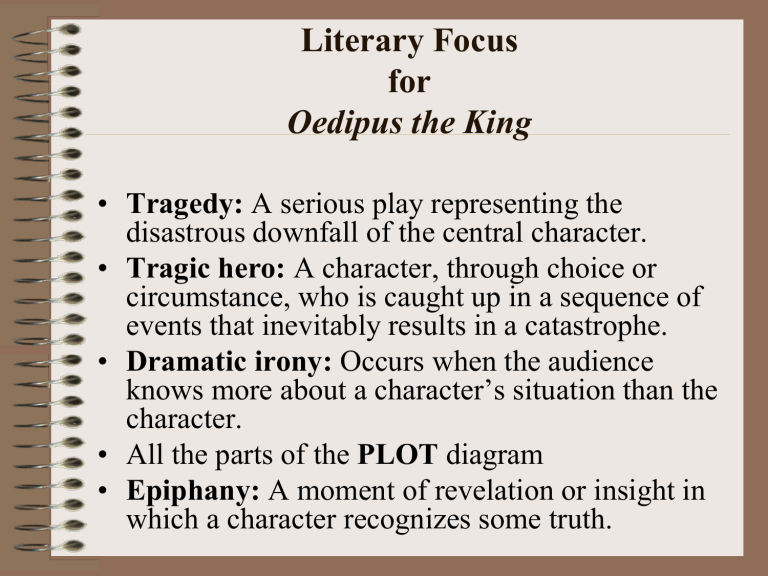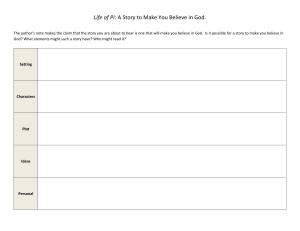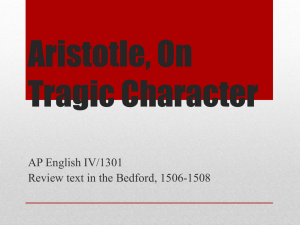
Literary Focus for Oedipus the King • Tragedy: A serious play representing the disastrous downfall of the central character. • Tragic hero: A character, through choice or circumstance, who is caught up in a sequence of events that inevitably results in a catastrophe. • Dramatic irony: Occurs when the audience knows more about a character’s situation than the character. • All the parts of the PLOT diagram • Epiphany: A moment of revelation or insight in which a character recognizes some truth. Aristotle’s Elements of Tragedy Who was Aristotle? • 384 BC – 322 BC • Greek philosopher • Studied at the Academy in Athens under Plato • Helped in the education of Alexander the Great • Significant contributions to science and philosophy • Wrote about drama and poetry in Poetics Tragedy • A serious play representing the disastrous downfall of the central character. Aristotle and Oedipus the King • Aristotle believed that Oedipus the King was the perfect tragedy. • Poetics was written around 350 BC. The first performance of Oedipus was around 425 BC, some 75 years before Aristotle wrote his work. • Aristotle used Oedipus to help illustrate his main ideas. According to Aristotle, there are 6 main elements of tragedy • • • • • • Thought Diction Melody Spectacle Character Plot We will discuss these elements from the least important to the most important. Thought • Saying what can be said and what should be said, meaning: – Do the lines spoken by the actors make sense? – Is the timing of their lines appropriate to what is happening on stage? Diction • If thought deals with what is said, diction deals with how it is said. • Effective and beautiful use of language in speech and dialogue. • The Greeks preferred artistic use of language. Melody and Spectacle • If music is being used, it must be appropriate. • Costumes, settings, and props should also be appropriate to the theme of the play. Character • The second most important element. • Important characters in each play should be: – properly developed – have believable personalities – be good in some way – act consistently throughout the play Plot The action of the play (plot) is the most important of the six elements! Plot continued… • There must be unity of plot. • This means that the plot must move from beginning to end according to a tightly organized sequence of events. A good plot has PERIPETY and/or DISCOVERY – Peripety is the sudden turn of events (a 180) – Discovery is the change from ignorance to knowledge When I say “GO”… • Find someone in this room who is approximately the same height as you and share with them TWO things you learned about tragedy. Move around the room, don’t just find the person sitting next to you! GO!



